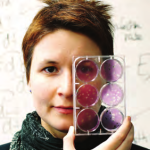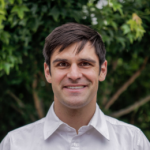2017 Summer School on Modeling Immunology
Emory University, Atlanta, May 21-24, 2017
Organizers: Rustom Antia, Andreas Handel and Veronika Zarnitsyna
.
The summer school is organized by the “Modeling Immunity to Influenza Infection” (MITII) Center, which is the part of the NIH/NIAID program on Modeling Immunity for Biodefense (MIB).
.
The main target audience for the Summer School are individuals who are early in their career (graduate students and postdocs), have solid training in the lab/bench-sciences, but not much mathematical/statistical modeling background, and want to get an introduction to modeling in immunology, virology, and related areas.
Schedule
The summer school will start on Sunday, 5/21 at 2pm and will end on Wednesday, 5/24 around 7pm.
- Days 1 and 2 will cover basic mechanistic dynamic models using ordinary differential equations.
- Day 3 will cover agent-based models.
- Day 4 will cover modeling of evolutionary dynamics.
We also strongly encourage the summer school attendees to attend the Symposium on 5/25 & 5/26.
Content
Days 1 & 2: Infectious Diseases, Immunology and Within-Host Models
- During this time, we will look at infectious diseases, the main components of the immune system, and mathematical modeling using pathogens such as HIV, TB, malaria, influenza and others. Our goal is to introduce basic immunological concepts and explain how to use mathematical models to study aspects of within-host infection dynamics. We will focus on simple compartmental deterministic models used to analyze the dynamics of pathogens, innate and adaptive immune responses. This helps to design and evaluate intervention strategies, such as vaccines and drug treatments.
Day 3: Spatial spread of virus infections and immunity using agent-based models
- This course component will introduce the concept of how spatial organization (e.g. a cell being next to another vs being far away) can affect the course and outcome of a virus infection in the presence or absence of an immune response. It will cover key concepts such as how best to represent different biological environments (defining neighbourhood, boundary conditions), and how to keep models grounded in biological reality by assigning and keeping track of physical units for their rates and probabilities. A number of important DOs and DON’Ts will also be highlighted. The practical part of the unit will make use of NetLogo and allows participants to select one of two example projects (influenza A virus infection spread; T cell movement within lymph nodes), or use the examples as a basis from which to develop their very own.
Day 4: Pathogen Evolution, Selection, and Immunity
- An introduction to immunity from an evolutionary perspective. We will introduce basic notions of molecular evolution, phylogenetics, and evolutionary models which will set the foundation for modeling pathogens and antibody-making B cells. We will additionally introduce multistrain compartmental models and introduce the diversity generating mechanisms of B and T cells, and survey repertoire analysis.
Teachers
The summer school will be taught by the following individuals:

Associate Professor, Department of Physics
Ryerson University ~ Toronto, Canada

Trevor Bedford
Assistant Member, Fred Hutch Center
Vaccine & Infectious Disease Division ~ Seattle, WA

Andreas Handel
Associate Professor, Department of Epidemiology & Biostatistics
University of Georgia School of Public Health ~ Athens, GA

Frederick “Erick” Matsen
Associate Member, Fred Hutch Center
Computational Biology Program ~ Seattle, WA
Logistics
- There is no fee to attend the summer school.
- Admitted students will be provided with accommodation at Emory in Woodruff Hall, one of the Emory dormitories. Rooms are single occupancy, with shared bathroom and kitchen. See this website for some more information.
- Meals, and travel expenses (airfare, mileage, etc.) will be reimbursed up to $500. Any expenses beyond this amount will need to be covered by the student.
-
We plan to admit around 30 students. Students are chosen based on the strength of their application and matches between their background and scientific interest with the program.
Requirements
- The main target audience for the summer are individuals who are early in their career (graduate students and postdocs), have solid training in the lab/bench-sciences but not much mathematical/statistical modeling background, and want to get an introduction to modeling in immunology, virology, and related areas.
- Students will need to bring their laptop for the summer school.
Application
- Application for the summer school is now closed.

